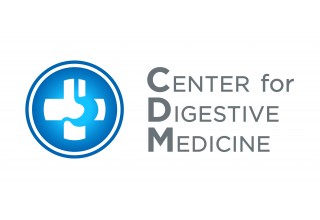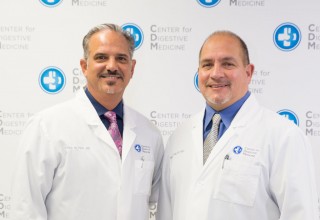The Center for Digestive Medicine's Article Outlines Benefits of Probiotics for Gut Health

MIAMI, January 5, 2018 (Newswire.com) - The Center for Digestive Medicine’s latest article outlines the benefits of probiotic consumption for healthy gut flora:
The two most commonly used groups of probiotics are Lactobacillus & Bifidobacterium. Lactobacillus organisms metabolize sugar to produce lactic acid. Bifidobacteria are the predominant bacteria in our intestinal flora. They produce acetic acid in addition to lactic acid, both of which are beneficial to our health.
There are many strains of bacteria within these two groups. Here are some of the strains used most often today.
- acidophilus. Occurs naturally in the mouth and gastrointestinal tract and aids in the fermentation of sugar.
- brevis. Normally found in the human intestines and excrement. L. brevis is also in many fermented foods.
- lactis. Breaks down body waste and helps with vitamin and mineral absoption. B. lactis has been found to improve digestion.
- infantis. Important for infant health. Can be passed along from mother to baby during pregnancy. B. infantis lives in our bodies our whole lives and improves digestion. Produces acid within the digestive tract making it more difficult for harmful bacteria and parasites to colonize.
- reuteri. Has been found to inhibit the growth of harmful bacteria, yeasts, fungi, and protozoa.
What is a Probiotic Delivery System?
A probiotic delivery system is a method by which probiotics are delivered into the body as usable, functional bacteria in large enough numbers to survive the harsh effects of the digestive system while still remaining effective.
There are two primary systems of which probiotics are delivered:
Non-Conventional Commercial Products – Consists mainly of food products produced with probiotic strains. Yogurt, cheeses, cream, chocolate, milk, and even meat. These are good delivery systems that are readily available, convenient, and beneficial to those who use them.
Conventional Pharmaceutical Formulations – These delivery systems tend to be the most effective formulations for the delivery of probiotics and come in the form of capsules, beads, and tablets. Pharmaceutical formulations tend to be more effective overall than the food-based systems.
Which Probiotic is Best for Me?
Each probiotic is different and which strains you take should largely depend on what ails you. Listed below are some of the most common digestive conditions and which probiotic may work best to treat and prevent them. However, keep in mind that it is recommended to discuss with your gastro doctor before taking probiotics or other supplements to treat specific conditions.
The Center for Digestive Medicine
The Center for Digestive Medicine is a premier gastroenterology and hepatology (liver disease) practice serving the Miami-Dade, Florida area that comprises three physicians and three ARNPs with a clinic and an Office-based endoscopy center within the same location for your convenience. Our providers utilize the most advanced equipment, current techniques, and medications to treat all aspects of gastroenterology related diseases including but not limited to: colon cancer screening, colonoscopy, treatment of disease of the liver and pancreas, management of GERD, inflammatory bowel syndromes such as Crohn’s and ulcerative colitis, and irritable bowel syndrome.
About Our Physicians:
Dr. Mark Avila earned his medical degree from Medical College of Wisconsin and proceeded to complete his Residency at Tucson Hospitals Medical Education Program. He obtained a Hepatology Fellowship at the University Of Miami School Of Medicine prior to his Clinical Fellowship in Gastroenterology at the University of Florida. Dr. Avila completed a Masters of Business Administration program at the University of Miami. Dr. Avila is Board Certified in Gastroenterology and has served on the Florida Board of Medicine after his appointment by then-Governor Bush. He has been in private practice in Florida since 1994. He is active in clinical trials involving therapy for Hepatitis C and Gastroenterological diseases.
Dr. Victor Piña attended the Universidad Autonoma de Centro America Costa Rica where he earned his medical degree. He then proceeded to complete his Residency training at Columbia University’s St. Luke’s Roosevelt Hospital Center. He completed a Clinical Fellowship in Gastroenterology at the University of Miami in 1992. He was Board Certified in Gastroenterology (1995) and Internal Medicine (1993). Dr. Piña has been in private practice in Miami since 1992 and has been the Chief of Gastroenterology at two local hospitals.
Source: The Center for Digestive Medicine

